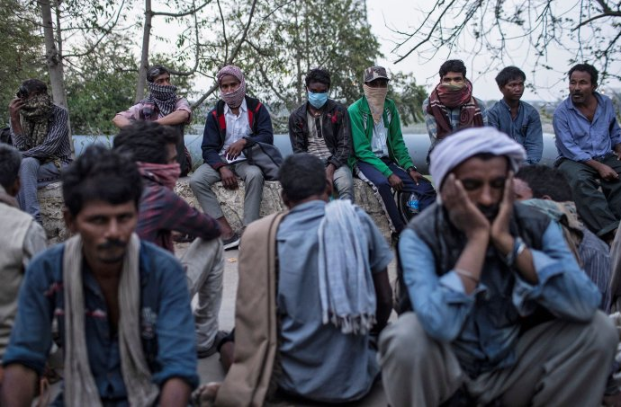65% Stranded Workers in Delhi Have Not Received Any Govt Aid, says CITU Survey

Representational image. | Deccan Herald
New Delhi: Almost 65% of stranded migrant workers in Delhi have not received any government aid after the nationwide lockdown from March 24 midnight, according to a survey conducted by the Centre for Indian Trade Unions (CITU) and the Communist Party of India (Marxist).
The survey was conducted among migrant workers during a relief campaign in the national capital under which about 20,000 workers were given necessary food items and other necessities.
As per the survey, a majority of workers, who worked as casual labourers with no work or income guarantee, maintained that they were left with too little rations to sustain themselves amid the sudden lockdown and were left with no option but to return to their families in their native villages in Uttar Pradesh, Bihar and West Bengal.
“About 35 per cent worked on piece-rated contracts and 23 per cent were daily-paid workers. This means that for 58 per cent of workers there is no guarantee for them of the number of days of work they can get. In such a situation it is clear that most of them would have no savings to fall back on. This is the main reason for the desperation we have seen of migrant workers wanting to go home,” the survey read.
The survey also brought forth the bitter reality about horrible working conditions and low incomes. According to the survey, 56% of the respondents were earning less Rs 10,000 per month whereas 35% said they had income between Rs. 10,000 and Rs. 15,000/month.
“With such low incomes the quality of life of these migrant workers is extremely difficult in a city like Delhi where the cost of living is so high. Because of high rents, most workers live together in small rooms sharing the rent. These are mostly in buildings with little ventilation, water scarcity and poor sanitation,” the survey read.
Despite such low income levels, the workers said they were able to send savings between Rs 2,000 to Rs 8,000 back home to support their families in their villages. A total of 27% respondents said their incomes were not enough to support their livelihood and could not save a penny.
The survey found that, among other things, what was restricting many workers from getting aid was lack of voter ID or Aadhaar Card or Ration Card.
The Delhi government had announced that stranded workers could get ration by uploading their Aadhaar cards on a dedicated website for food distribution. However, the announcement was criticised as most of the workers were found to be digitally illiterate.
Elaborating on the survey, Anurag Saxena, General Secretary, CITU, told NewsClick that these workers were abandoned after the lockdown and it was the government’s slow response that triggered the migrant crisis.
“During our relief campaign, we noted that the labourers were abandoned by their contractors or factory owners who outrightly denied them their dues or salaries. The situation was quite distressing in Gandhi Nagar, where thousands of workers work on piece to rate contracts” Saxena said, adding that the Delhi government acted slowly because it does not have exact data on the number of migrant workers in Delhi.
“The workers queued in front of food vans and schools for meals. But the amount of food distributed was inadequate to cater to the huge crowd. With depleted savings and looming uncertainty, they were forced to leave for their villages. Had the unions and other non-government organisations not acted swiftly in providing relief, there would have been a serious law and order situation in Delhi,” the trade union leader said.
Demanding rations for all, Saxena said: “We still do not know how long the situation will persist. The Delhi government has accepted some of our demands that they will distribute some other essential items, including edible oil, sugar, salt and spices. But it must also ensure ration to all. Second, we are consistently facing the risk of infection and it may worsen if people are forced to queue in front of ration shops. Thus, we demand that the government should distribute ration door-to-door to lower the risk (of COVID-19).”
Get the latest reports & analysis with people's perspective on Protests, movements & deep analytical videos, discussions of the current affairs in your Telegram app. Subscribe to NewsClick's Telegram channel & get Real-Time updates on stories, as they get published on our website.
























